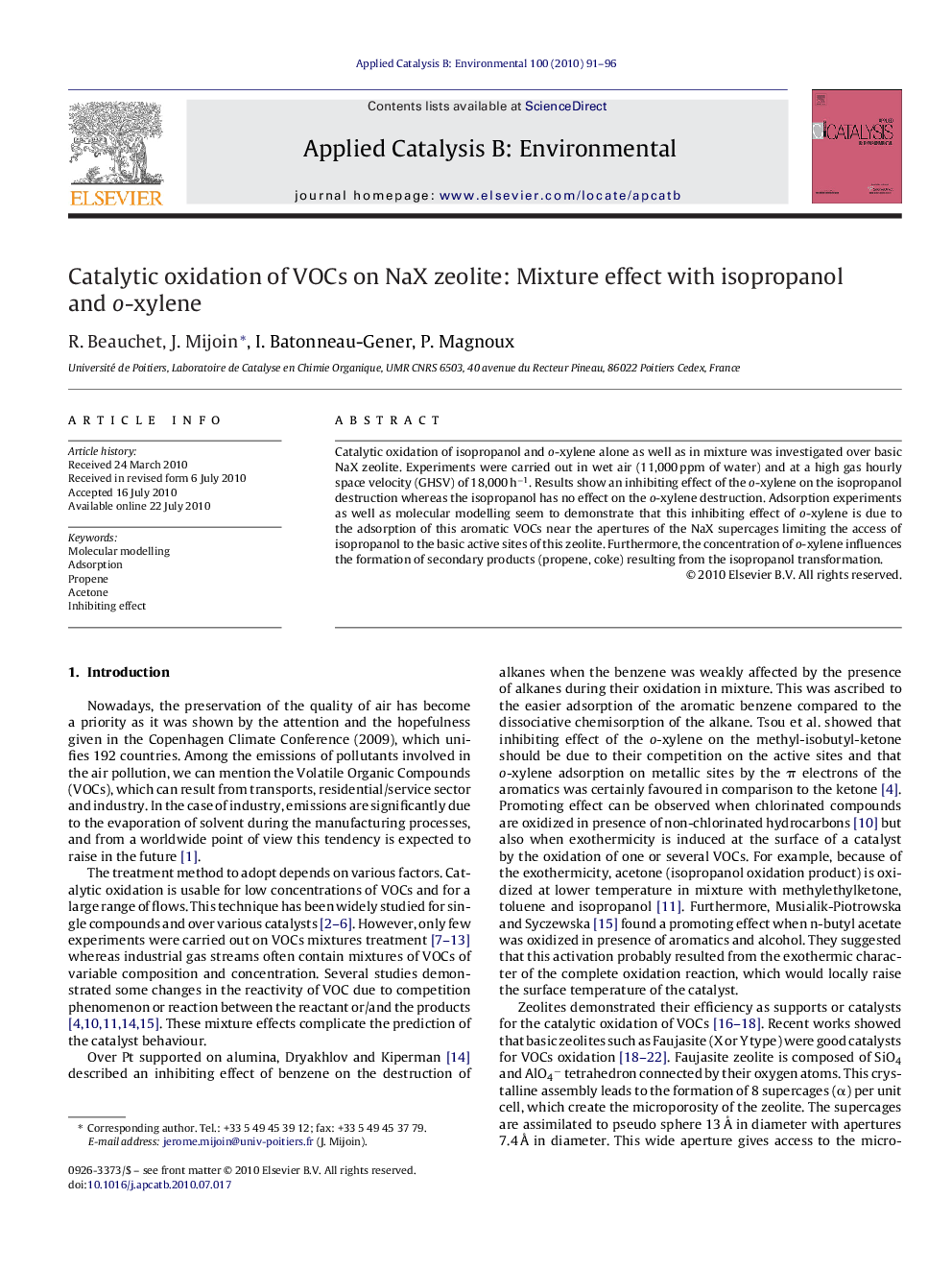| Article ID | Journal | Published Year | Pages | File Type |
|---|---|---|---|---|
| 47147 | Applied Catalysis B: Environmental | 2010 | 6 Pages |
Catalytic oxidation of isopropanol and o-xylene alone as well as in mixture was investigated over basic NaX zeolite. Experiments were carried out in wet air (11,000 ppm of water) and at a high gas hourly space velocity (GHSV) of 18,000 h−1. Results show an inhibiting effect of the o-xylene on the isopropanol destruction whereas the isopropanol has no effect on the o-xylene destruction. Adsorption experiments as well as molecular modelling seem to demonstrate that this inhibiting effect of o-xylene is due to the adsorption of this aromatic VOCs near the apertures of the NaX supercages limiting the access of isopropanol to the basic active sites of this zeolite. Furthermore, the concentration of o-xylene influences the formation of secondary products (propene, coke) resulting from the isopropanol transformation.
Graphical abstractEvolution of propene (a), acetone (b), CO2 (c) and coke (d) selectivities obtained from the transformation of 1360 ppm isopropanol (○), 1360 isopropanol/210 ppm o-xylene (●) and 1360 ppm isopropanol/1360 o-xylene (■) as a function of temperatures after 5 h of reaction on NaX.Figure optionsDownload full-size imageDownload as PowerPoint slideResearch highlights▶ Isopropanol has no effect on o-xylene oxidation over NaX zeolite. ▶ o-Xylene adsorbs at the pore aperture of NaX zeolite and inhibits isopropanol oxidation. ▶ o-Xylene competes with propene formed from isopropanol. ▶ o-Xylene promotes coke formation.
